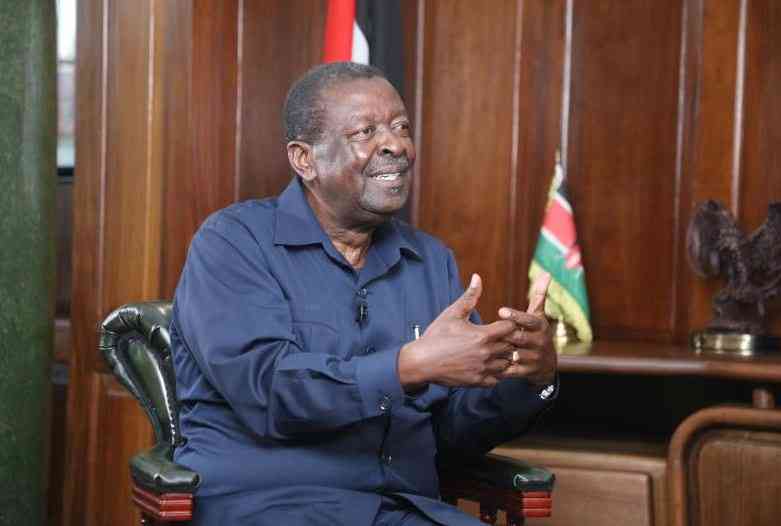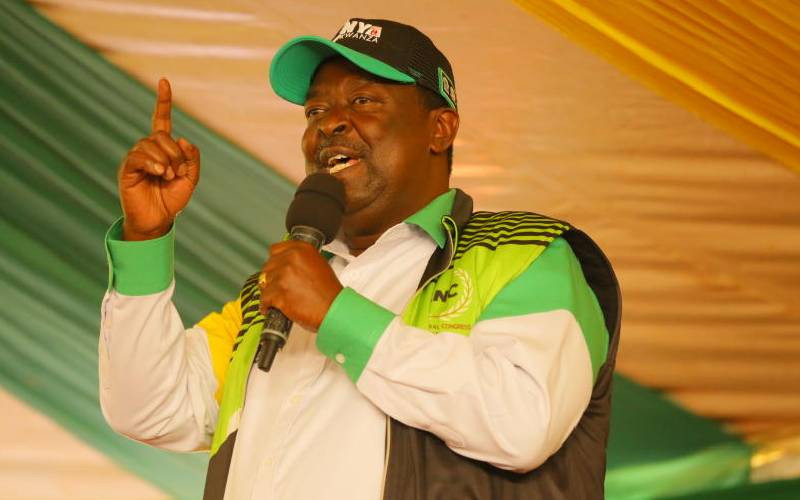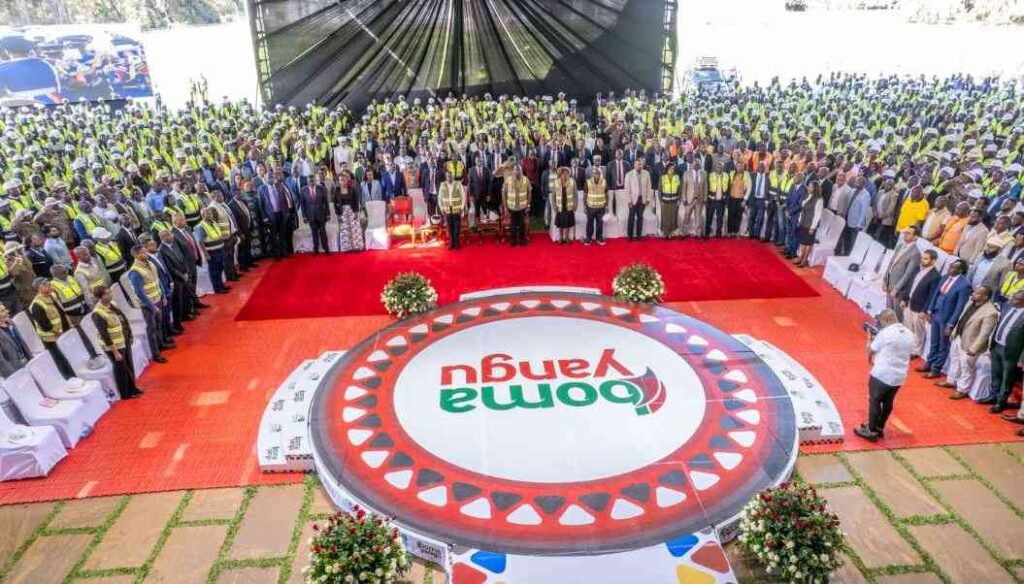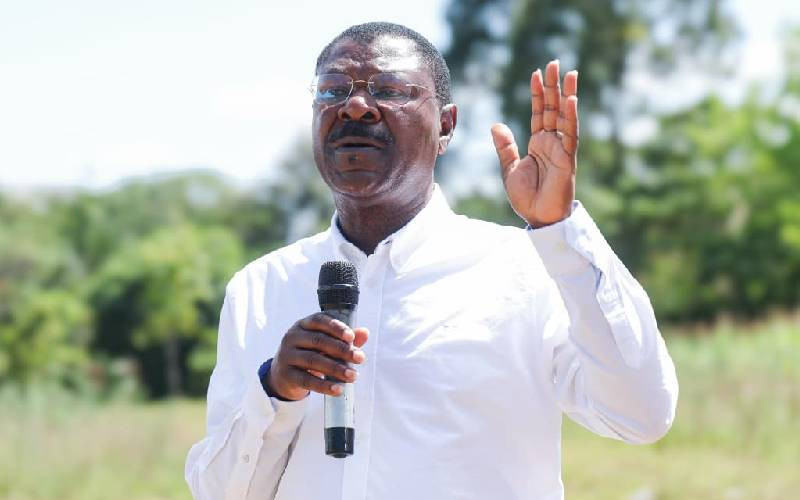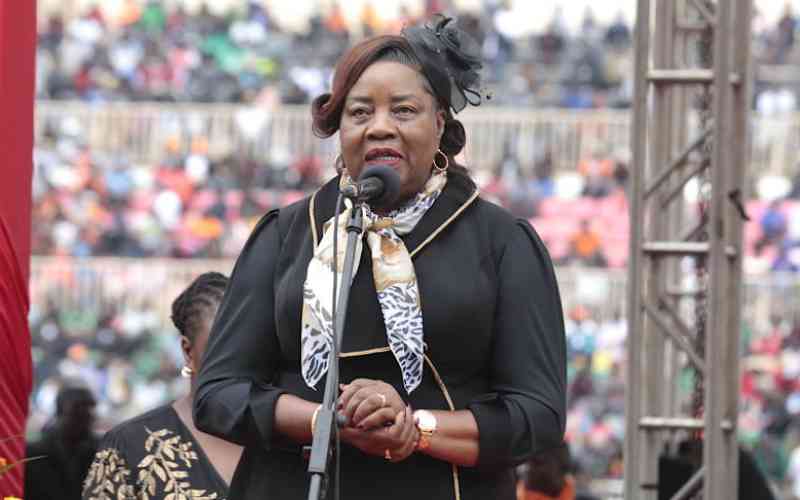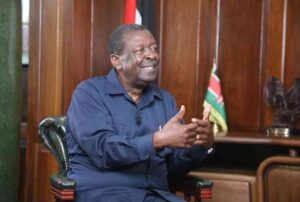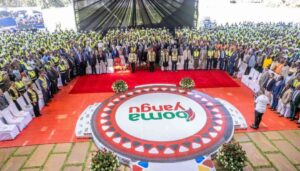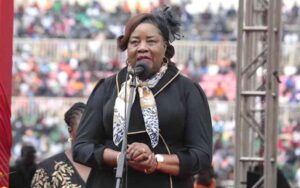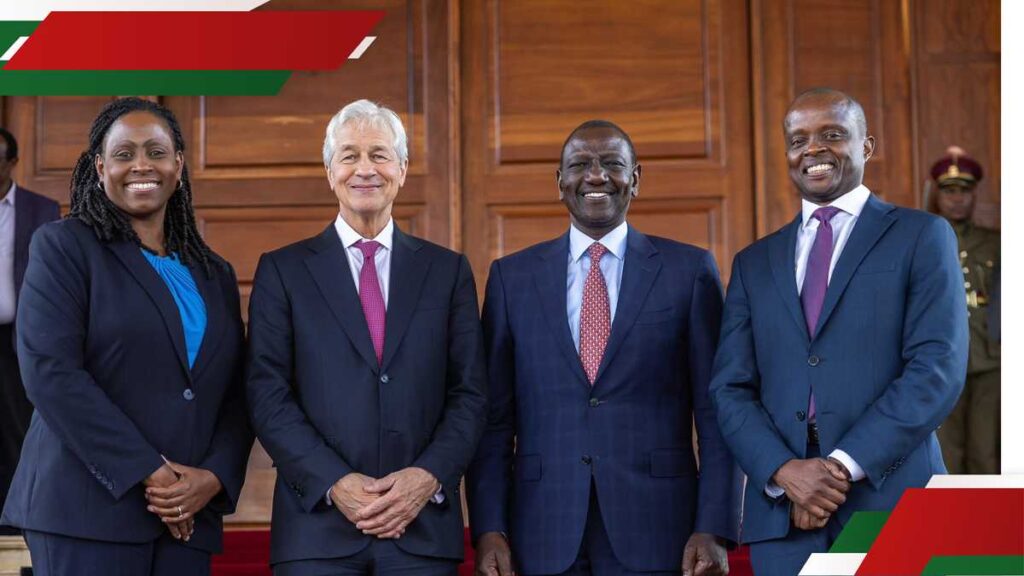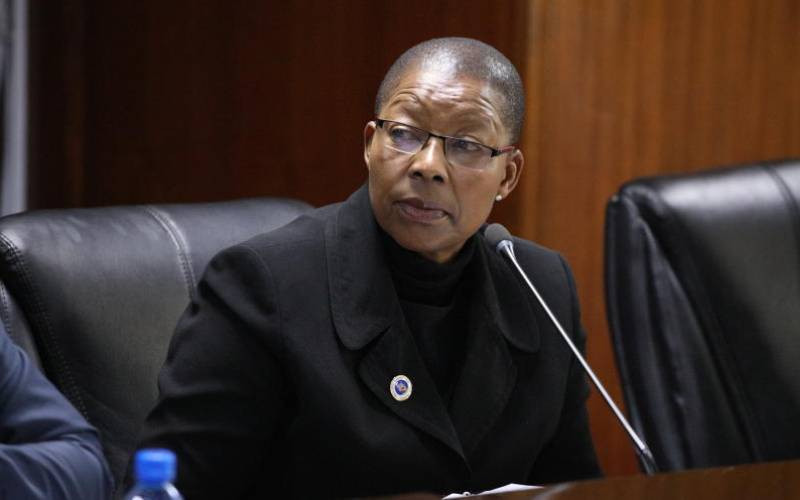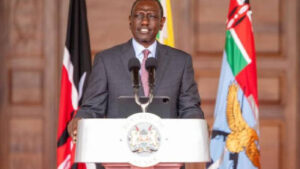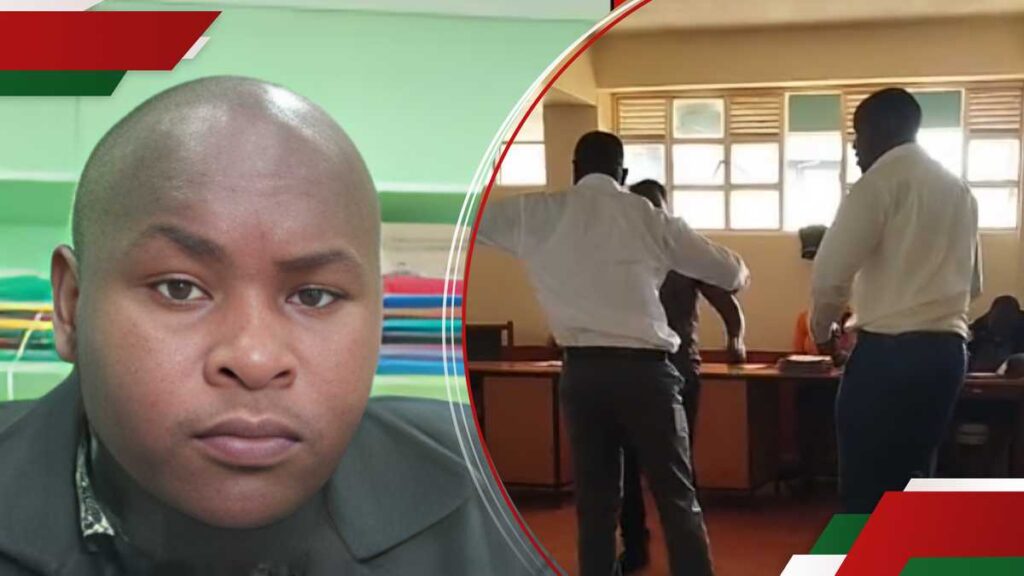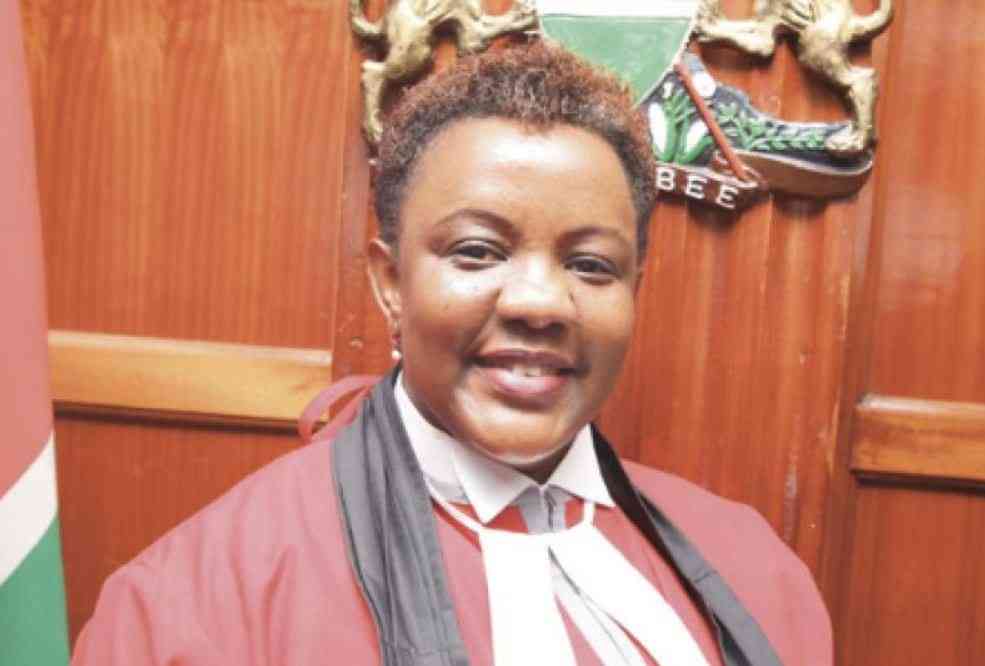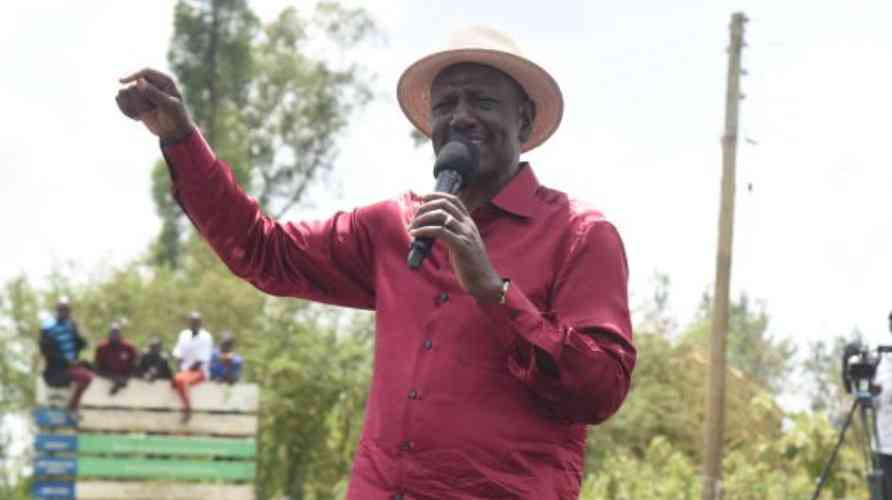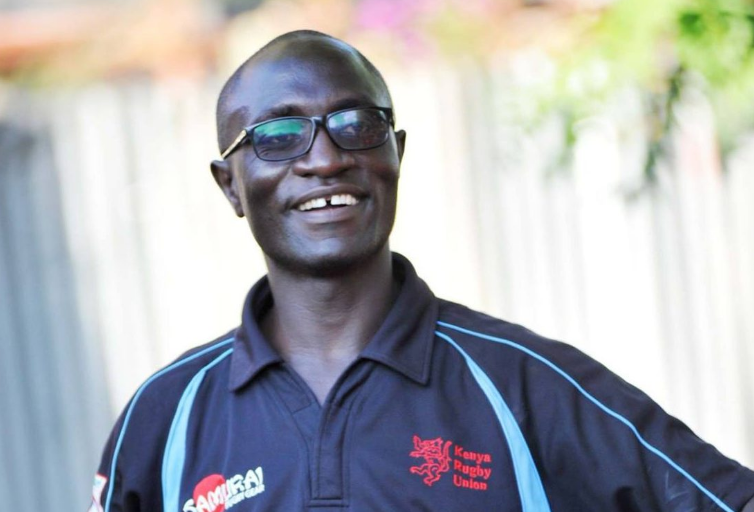Despite having served the country in numerous capacities in both academia and government, Prof Paul Musili Wambua did not have a national award to his name until Thursday last week.
Yet his life outside government had been marked by honour and award, right from the day he graduated from the Kenya School of Law in 1986, taking with him two awards then.
He won the Law Society of Kenya (LSK) best student in the Council of Legal Education as well as the Masukh Jivraj Prize (1986) for the student who made the greatest non-academic contribution to KSL in that academic year.
For the next 38 years, Prof Musili would excel in both private and public service, serving in different national capacities and processes.
Between 2002 and this year, he served in at least five task forces as either member or chair, among them review of maritime laws leading to formation of the Kenya Maritime Authority, and the religious institutions task force in the wake of Shakahola massacre last year.
Between 2000 and 2005, Musili was a member of the Prof Yash Pal Ghai-led Constitution of Kenya Review Commission, which laid the basis for the Bomas and Wako drafts, and eventually Constitution 2010.
He has taught at the University of Nairobi since 2000, and is one of the few trainers and practitioners of the law of the sea in the country, has served as associate dean, and chaired the Betting Control and Licensing Board between 2013 and 2016 when betting blossomed.
He then moved to the University of Embu as chancellor, transforming it from a constituent college to a fully-fledged, chartered university. And up until a few weeks ago, he served at the Kenya Law Reform Commission from 2019.
Yet for his decorated public life, the only medal he held was a commemorative one, handed in 1999 to mark President Moi’s 20 years in power.
Now with a Second Class Elder of the Order of the Burning Spear (EBS) awarded last week, the law professor is luckier than numerous other Kenyan achievers who are lowered to their caskets without any accolades suffixed to their names.
They are victims of honours and awards that have lacked rhythm, largely remain opaque and tend to follow political patterns.
Lawyer Peter Wanyama is among the generation which came into public life post-commemorative medal days, and who were equally surprised last week.
After beating the odds of abject poverty and attendant miserly as an internally displaced person, Wanyama rose to the pinnacle of legal practice, shining with the rollout of devolution and helping the Council of Governors to navigate nascent legal hurdles.
Paired against political hotcakes like Martin Kamotho aka Githeri Man, Wanyama stood little chance of scooping a national award as the Moran of the Burning Spear. For walking to a polling station holding on to a banned polythene bag with boiled maize and beans, Kamotho received a Head of State Commendation (HSC).
“I am now an MBS (Moran of the Burning Spear) after 17 years of constitutional law litigation. The first time in my life for me to be formally recognised and awarded. I am humbled,” Wanyama on social media.
Stay informed. Subscribe to our newsletter
Since the citations are not widely publicised, no one knows exactly why Wanyama or even Musili were honoured other than those who nominated and processed their nominations. It is, however, notable that Wanyama was honoured alongside the constellation of legal minds who starred at Deputy President Rigathi Gachagua’s impeachment process at the Senate.
Eric Gumbo and Muthomi Thiankolu got an MBS while Paul Nyamodi got a higher level award, an EBS. Mahat Somane, who represented the Independent Electoral and Boundaries Commission (IEBC) in the proceedings, also got an MBS.
Achievers by their own right, the lawyers are however unable to shake off the perception that their honour was related to the most voluble, visible event of the year.
Yet they are luckier than their president at the LSK, Faith Odhiambo. Earlier in the year, Odhiambo floored Wanyama, becoming the second woman after Rachel Omamo to head the body which advises and assists members of the profession, the government and the larger public in the administration of justice.
On the week she was missing out on the national honours, Odhiambo bagged two awards from her peers. She won the International Commission of Jurists’ Jurist of the Year award for her work in advancing human rights, and the CB Madan Award for her commitment to the rule of law.
“As the president of the LSK during one of the most challenging periods in the nation’s history, she has led the society with boldness and vision, leading the charge in ensuring that state agencies operate within the boundaries erected by the Constitution,” her citation read.
In the awards, President William Ruto finally honoured Deputy Chief Justice Philomena Mwilu with an EGH after a long wait and despite the award being enjoyed by practically all Cabinet members, including disgraced ones, parliamentary leadership and some of her juniors in government pecking order.
Seven EGH medals, the second highest, went to the top Judiciary, military, Cabinet, county and parliamentary leadership


